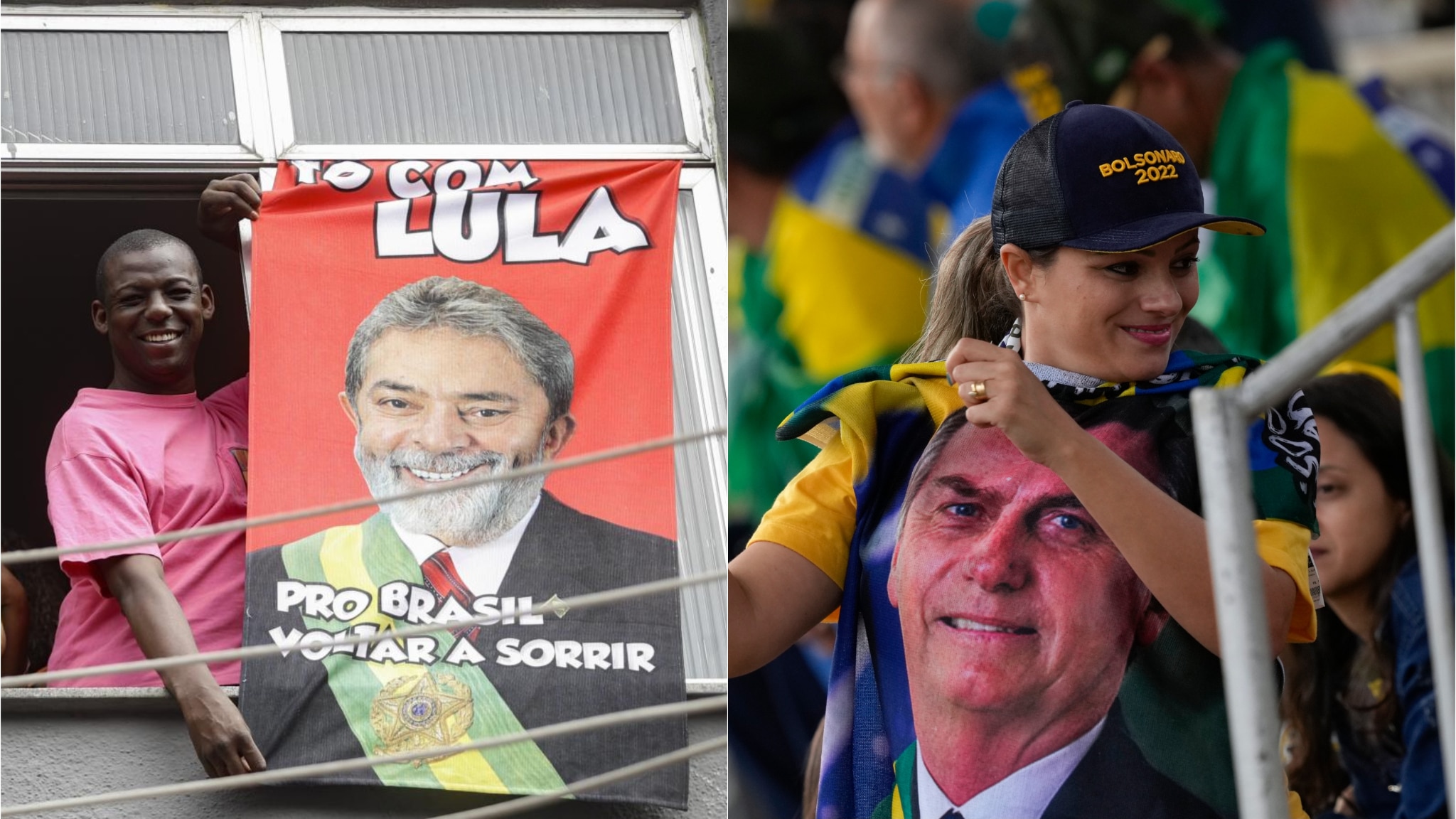The latest
polls
on voting intentions ahead of
today's presidential elections in Brazil
do not exclude that
Inacio Lula da Silva
will secure the election
without the need for a second round
.
According to the survey of the
Ipec Institute,
the former president (2003-2010)
has 51% of the valid votes
(one point less than last Monday) and the current president,
Jair Bolsonaro
, who is running for re-election,
has the 37%
(up by three points).
The
Datafolha poll
, on the other hand, assigns
50% of the valid votes to the socialist leader
(unchanged from the previous poll) and to
the right-wing leader 36%
(also unchanged).
The Brazilian electoral law provides for the
automatic election of the candidate who obtains more than half of the valid votes
(excluding blank and invalid ballots) in the first round
and a ballot, scheduled for October 30
, if no one exceeds this limit.
According to pollsters, Lula's victory in the first round is not guaranteed because both polls have a two percentage point
margin of error
, so voting intentions could range from 48% to 53%.
According to experts, the possibility of the race being decided today also depends on
the abstention rate
, as Lula could be damaged if a large number of voters decide not to go to the polls.
Aware of the possibility of being elected in the first round, the former union leader spent the last days of his election campaign in search of the "
useful vote
", that is the support of the voters of third party candidates who do not want to waste their vote. Similarly, Bolsonaro also sought the voters of other candidates with the intention of reducing the advantage that separates him from his major political rival and to seek to force a second round, in the hope of reversing the situation in the next four weeks From the Ipec survey it would seem that Bolsonaro's strategy has been more successful so far.
Bolsonaro
's re-election committee
was asked to
limit the
Supreme Court's decision that obliges municipalities to
keep public transport
running on voting day albeit Sunday, but the
Tribunal Superior Eleitoral
considered the
request absurd
.

